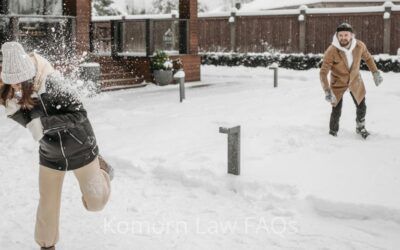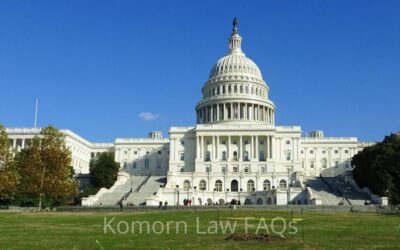Michigan Criminal Laws FAQs Brass KnucklesGetting caught with brass knuckles in Michigan can lead to serious legal trouble. While some states have more lenient laws, Michigan takes a strict stance on these types of weapons. If you or someone you know faces charges...

Drones – What Drones? Update
Drone story update January 28, 2025
NJ drones ‘were authorized to be flown by FAA for research,’ Donald Trump says
The mysterious drones that captivated New Jersey late last year were not enemy craft, but instead were authorized by the FAA, President Donald Trump said in a statement Tuesday.
The statement raises numerous questions about why the FBI and law enforcement officers did not know and were not advised that the flights had been authorized by the FAA, or why the FAA did not acknowledge that they had authorized the drone flights.
Previous story – Dec 2024
Jersey cops launched into the night sky with catapults to throw dreamcatchers at the unknown drones to entangle their props and bring em down! Just kidding – I think.

Darrr.. What drones? Those drones pose no threat there are no drones. That’s just a balloon, Everything is secure.
Dec. 14, 2024
Right now, the FBI, DHS, FAA and DOD have been unable to determine who is responsible for flying the drones, and there’s no indication that there are adversary nations involved.
“To date, we have no intelligence or observations that would indicate that they were aligned with a foreign actor or that they had malicious intent,” the spokesperson said. “But … we don’t know. We have not been able to locate or identify the operators or the points of origin.”
“The main point is to deter the activity using some of our electronic means that can respond to most of these small commercial systems and deny them access to the airspace over our bases,” the spokesperson said. “We don’t know what the activity is. We don’t know … if it is criminal. But I will tell you that it is irresponsible. Here on the military side, we are just as frustrated with the irresponsible nature of this activity.”
Darrrrr
National Security Concerns
Flying drones near airports, military bases, or other restricted areas can lead to immediate police action. The Federal Aviation Administration (FAA) has strict rules about no-fly zones, and Michigan police will work with federal authorities to confiscate drones that pose a national security risk. Just like in New Jersey, New York, Florida, California and Nevada.
Use You Right To Remain Silent
If you have been accused or charged with a crime.
Say nothing to anyone. Talk to us first.
Our firm is experienced in both State and Federal courts defending clients.
CALL NOW
Flying a Drone
Do I Need to Be Licensed?
If you’re flying a drone for commercial purposes, you must have an FAA Part 107 Remote Pilot Certificate. To get this, you’ll need to pass a knowledge test administered by the FAA.
If you’re flying for recreational purposes, you don’t need a license, but you must follow FAA safety guidelines, including flying below 400 feet and keeping the drone within your line of sight.
Do FAA Laws Supersede Local Laws?
Yes, Federal Aviation Administration (FAA) laws take precedence over state or local drone regulations.
This means that federal rules about airspace, drone registration, and licensing apply across the country, including Michigan. However, local laws that don’t conflict with FAA rules—like those concerning privacy or property—can still apply.
Michigan State Laws:
In Michigan, there are no separate state registration requirements for drones beyond the FAA’s regulations. However, local ordinances may still apply, particularly regarding where you can fly the drone, so it’s important to check local rules.
Disclaimer: This article provides a general overview and does not substitute for legal advice. As with any law it can change or be modified and research should be done before you rely on any information provided on the internet. Although we make all attempts to link relevant laws these laws can often be gray and corrupted to fit a narrative. Anyone charged with any alleged crime should consult an attorney for specific legal guidance.
Beautiful when they are used for good…
Michigan Laws
Client Was Caught With Brass Knuckles – What’s the Law?
Resisting an Unlawful Arrest in Michigan
Michigan Criminal Laws FAQs Resisting an Unlawful Arrest in MichiganThe question of whether you can legally resist an unlawful arrest in Michigan is complex, and the answer is generally no, with very limited exceptions. While the idea of defending oneself against an...
Criminal Law FAQs – Assault with Intent to do Great Bodily Harm Less Than Murder (AWIGBH)
Michigan Criminal Laws FAQs Assault with Intent to do Great Bodily Harm Less Than MurderAccording to Michigan State Law (Michigan Compiled Laws - MCL), Assault with Intent to do Great Bodily Harm Less Than Murder (AWIGBH) is a serious felony offense defined in MCL...
Criminal Law FAQs – Operating a Vehicle with a High BAC
Michigan Criminal Laws FAQs Super Drunk (High Breath Alcohol Content)Operating a Vehicle with a High BAC (Super Drunk) - MCL 257.625(1)(c)FAQ 1: What BAC level qualifies as "High BAC" or "Super Drunk" in Michigan? Answer: In Michigan, operating a vehicle with a blood...
Criminal Law FAQs – Bench Warrant
Michigan Criminal Laws FAQs Bench WarrantsAccording to Michigan State Law (Michigan Compiled Laws - MCL), a Bench Warrant is a court order that directs law enforcement officers to arrest and bring a specific individual before the court. It's issued by a judge (from...
Criminal Law FAQs – Traffic Offenses
Michigan Criminal Laws FAQs Traffic OffensesAccording to Michigan State Law (Michigan Compiled Laws - MCL), Traffic Offenses encompass a wide range of violations related to the operation of motor vehicles on public roads and highways. These offenses are primarily...
Criminal Law FAQs – Drunk and Disorderly
Michigan Criminal Laws FAQs Drunk and DisorderlyAccording to Michigan State Law (Michigan Compiled Laws - MCL), there isn't a specific statute that solely defines "Public Drunkenness" as a statewide criminal offense in the same way some other states might have a...
Criminal Law FAQs – Drinking Alcohol or Smoking Marijuana and Driving
Michigan Criminal Laws FAQs Operating a Motor Vehicle Under The InfluenceWalking is cool... For fun and excercise. Not because you lost your license. Don't do the crime if you can't pay the price. But if you do get charged with a crime. Better Call Komorn to fight for...
Criminal Law FAQs – Probation Violations
Michigan Criminal Laws FAQs Theft CrimesAccording to Michigan State Law (Michigan Compiled Laws - MCL), a Probation Violation occurs when a person who has been sentenced to probation fails to comply with the terms and conditions of their probation order. These terms...
Criminal Law FAQs – Theft Crimes
Michigan Criminal Laws FAQs Theft CrimesAccording to Michigan State Law (Michigan Compiled Laws - MCL), Theft Crimes generally involve the unlawful taking of someone else's property with the intent to deprive them of it, either permanently or for a significant period....















